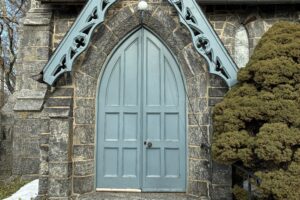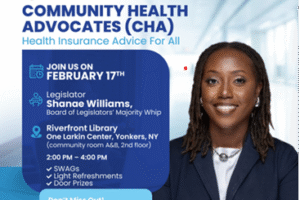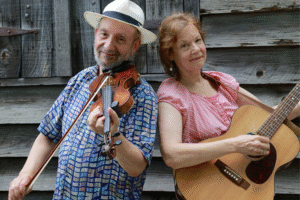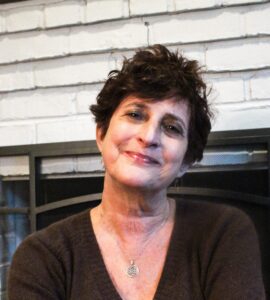
Briarcliff Manor resident Abbe Marcus has spent her career transforming education through experiential and immersive learning. With a background rooted in social justice and advocacy, she now leads Journeys to Change, a nonprofit dedicated to creating powerful educational trips that connect participants with pivotal moments in civil rights history.
As executive director of Journeys to Change, Marcus is building more than just educational trips. She is crafting experiences that inspire action, deepen empathy and ensure that the lessons of history are carried forward into the future.
Marcus’ career began in special education, but her passion for innovative, hands-on learning grew during her time as a substitute teacher at Congregation Sons of Israel in Briarcliff Manor. When she noticed that students were disengaged inside the classroom, she proposed a radical new approach. “I said, let’s not keep them in the building. Let’s go out and be immersive and experiential. If we’re learning about the importance of protecting the environment, let’s clean up a park and connect it to lessons from the Torah,” she recalls.
Bringing her expertise to UJA-Federation of New York, Marcus co-founded J-Teen Leadership. This program took teens on trips across the U.S., integrating Jewish values with social justice work. The experiences were eye-opening for participants, as they traveled to New Orleans post-Hurricane Katrina, Houston, Detroit, and other cities to do community service while learning about the deeper social issues impacting these places. The goal, Marcus explains, was not just to travel but to “connect the dots between what they learned on the road and how they could implement change in their own communities,” she says.
After five years at J-Teen Leadership, Marcus moved on to the Workers Circle, a Manhattan nonprofit promoting social and economic justice. It was there she developed civil rights tours to the South, taking diverse groups to pivotal locations like Montgomery, Birmingham and Selma.
Soon word spread about the trips Marcus was organizing, and she became highly sought after by synagogues, schools, and other organizations eager to immerse their members in the civil rights history of the United States.
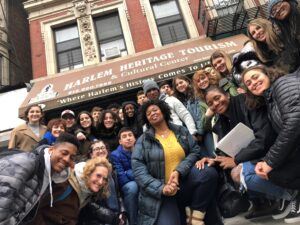
One of her most powerful trips, inspired by the violent events of the 2017 Charlottesville rally, was an interfaith, intergenerational journey organized in partnership with Shira Milgrom, rabbi emeritus at Congregation Kol Ami in White Plains. “It wasn’t just a historical tour. We ate together, walked through neighborhoods and listened to stories from community leaders,” Marcus says. This approach deepened the experience for participants, making history come alive in a profound way.
Now, as the executive director of Journeys to Change, Marcus continues to design local and destination “journeys” that emphasize personal connections to history. One of her signature trips focuses on Alabama, where participants visit the Legacy Museum and the National Memorial for Peace and Justice in Montgomery. Founded by Bryan Stevenson of the Equal Justice Initiative, these sites tell the story of slavery, segregation, lynching and mass incarceration in America. Often her groups will meet with one of Stevenson’s team of lawyers and staff members to hear about the current work the EJI is conducting. Marcus believes this is crucial to understanding today’s struggles for social justice.
“They can try to take this part of our history out of the curriculum in all the schools they want, and they can try to take certain books off the shelves, but once you’ve been there and met the people involved, you can’t forget it and this history becomes a part of you. It’s so powerful,” says Marcus.
Her upcoming adult group trip to Memphis in November highlights Marcus’ commitment to experiential learning. Participants will tour the National Civil Rights Museum built around the former Lorraine Motel, where Martin Luther King Jr. was assassinated. They’ll visit landmarks like the Stax Museum of American Soul, attend a Shabbat service and experience a Sunday church service, meet with community leaders involved in the civil rights moment and ongoing social justice initiatives, among other activities. For Marcus, it’s not just about learning history; it’s about how participants can apply what they learn in their own lives.
Marcus is expanding Journeys to Change by developing programs for private groups and schools and also arranging for speakers to address people who can’t travel. She’s particularly interested in working with professionals — teachers, lawyers, doctors — who can return from these trips and share their experiences with their broader communities. “If I take 20 teachers, they can come back and impact hundreds of students. It’s about creating a ripple effect,” she says.


